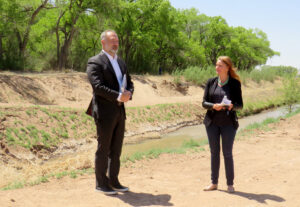Pennsylvania hearing focuses on Philadelphia refinery cleanup efforts

The Pennsylvania Senate Environmental Resources and Energy Committee reviewed efforts Wednesday to remediate the Philadelphia Energy Solutions Refining Complex, including the continued public health risks from what many believe to be the state’s largest source of pollution.
The informational meeting was the second since a 2019 explosion destroyed the south Philadelphia facility that previously processed about 335,000 barrels of crude oil a day into gasoline, jet fuel, propane, home heating oil and other products.
Joe Adams, the deputy secretary for field operations for the Pennsylvania Department of Environmental Protection (DEP), outlined the ongoing efforts to monitor and remediate contaminants at the facility previously known as the Sunoco South Philadelphia Refinery, which has since been sold to Chicago development company Hilco.
Adams said the site contains 246 holding tanks that are expected to be removed by 2025, including at least 40 that already have been demolished and removed and others still in use. Work to clean up the 1,300-acre site has been ongoing since the 1990s, but a complete plan and controls to finish the job won’t be in place until 2030, he said.
It remains unclear how long the total cleanup will take.
“The bottom line is this is a pretty lengthy process,” Adams said. “It has extensive contamination from years of active refining.
“We have contaminated soil, contaminated ground water, and other issues on site,” he said. “In this case, I don’t think there will be a … release of liability by 2030.”
Sen. Katie Muth, D-Berks, and Minority Chair Carolyn Comitta, D-West Chester, questioned whether the DEP is working with the Department of Health to share data and monitor the health effects to residents in neighborhoods around the facility, who are predominantly minorities with low income.
Adams said his department focuses mostly on compliance with standards set in state law and does not routinely share data with the health department.
Marilyn Howarth, the director of community outreach and engagement at the University of Pennsylvania’s Center of Excellence in Environmental Toxicology, confirmed there is “no ongoing surveillance of health impacts by the city or state of Pennsylvania” despite the site’s history as the “largest emitter of volatile chemicals” in the state. Many of the chemicals are carcinogens, and their impact is obvious in elevated cancer rates in the neighborhoods surrounding the site, she said.
“The neighborhood residents can expect increased cancer rates for decades,” Howarth said.
Howarth cited other issues with testing thresholds for lead and benzene, pollution from idling trucks and cars on nearby highways and other air pollution that results in “elevated rates for heart attacks (and) premature birth.” She also discussed how future plans for the site that involve port vehicles could contribute to the air pollution if not addressed.
“In order to improve and make risk evaluation adequate to protect people in fenceline neighborhoods, what needs to be done?” Comitta asked.
Howarth called for better coordination with the health department, off-site monitoring of the toxins, more transparency and monitoring of the health impacts.
Clean Air Council attorney Christopher Ahlers discussed issues with the progress reports submitted by Evergreen LLC, the Sunoco company hired to oversee the remediation. He highlighted concerns with the thresholds set for lead and other contaminants, as well as a lack of transparency and public engagement in the process.
Ahlers contends fragmented reports on different aspects of the cleanup, coupled with vague and inadequate public notices, make it difficult for the public to get a clear picture of the progress.
“We shouldn’t be given little bits of information at a time to review,” he said. “Even for me, these reports take a long time to review.”
Adam Nagel, campaign manager for the nonprofit advocacy group PennFuture, agreed the site reports are inadequate and not transparent, and he warned climate change could have a major effect on “migration of contaminants in groundwater” to other areas.
Nagel also said “environmental justice must be at the heart of our environmental policies” and professed support for Senate Bill 189, a bill to codify and expand the Pennsylvania Office of Environmental Justice.
Rodney Ray, a former refinery employee who was among the first to publicize problems at the site, described his experience working there and the effect it had on his health. Ray said he worked 12-hour shifts every day for two years cleaning the inside of oil tanks without an adequate face mask and he’s now dealing with congestive heart failure.
“I walk a block and I have to sit down,” he said.
Ray said he has lived within three blocks of the refinery his entire life. When he attempted to raise concerns about the work environment, it didn’t go well, and he since has dedicated his efforts to protesting the plant and its effect on his community.
Ray contends Evergreen never has engaged with the community, despite what Evergreen describes as a “robust and inclusive public engagement plan.”
Committa cited a report that claims the company is engaging in analysis and interviews in the community, as well as public meetings to provide more updates, but Ray said he was unaware of those efforts.
“It wasn’t a long enough conversation and there’s lots of follow-up conversations that need to be had,” Committa said.
Sen. Tony Williams, D-Philadelphia, said the environmental impact likely extends well beyond the immediate area, and he called for an investigation into the broader implications for the region.
“We need to take a larger look,” he said.
This article was originally posted on Pennsylvania hearing focuses on Philadelphia refinery cleanup efforts







